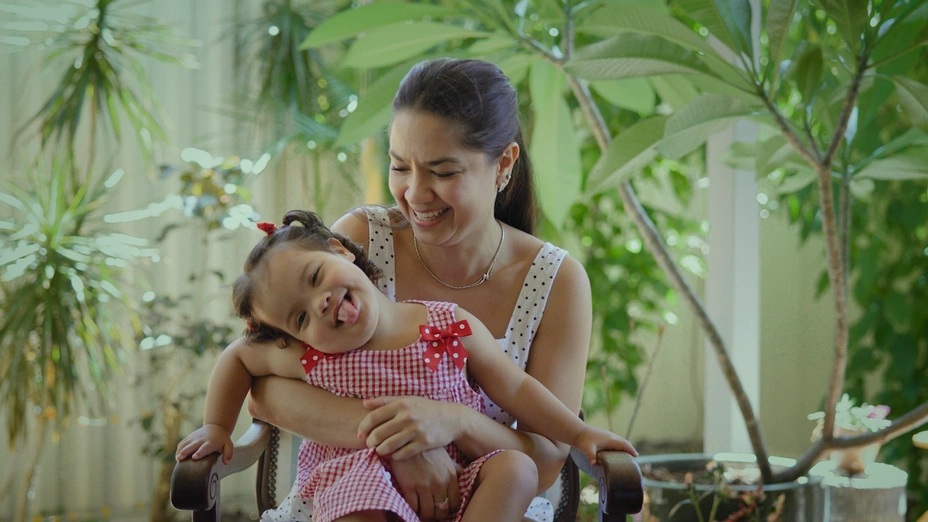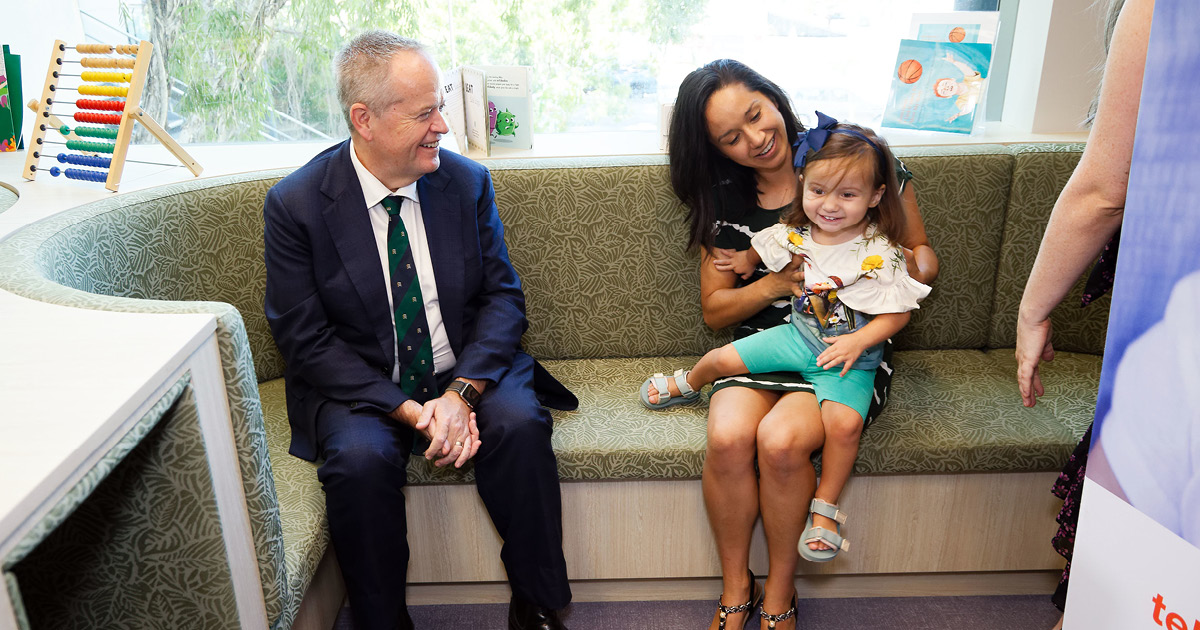A world-first program for babies with differences in their social and communication skills is aiming to help parents and caregivers better understand the different ways their child communicates.
Launched in Western Australia earlier this year, The Kids Research Institute Australia’s Inklings program is for babies aged 6-18 months who are showing differences in their social interaction and communication development.
Backed by more than a decade of rigorous research, Inklings uses short videos of a caregiver interacting with their baby to help them better understand the different ways their baby communicates. With guidance from a trained practitioner, caregivers learn strategies to build on their own strengths as a responsive communications partner for their baby.
Helping to launch the pilot program, Minister for the NDIS and Government Services Bill Shorten said Inklings aimed to literally change lives. “It’s about as close to a miracle as you can get, because what we see is that if you can help them early enough, you can give them a different trajectory in life,” Mr Shorten said.
The program puts Australia at the head of the world in redefining early childhood supports. What we have learned from Inklings has the potential to change the way we help our littlest Australians who have delays.
The 10-session Inklings program is delivered fortnightly over six months, either in-clinic or via telehealth.
The Inklings program builds on landmark research conducted by The Kids Research Institute Australia, University of Manchester, La Trobe University and CAHS, which found improvements in parent-child interactions and children’s language skills.
Professor Andrew Whitehouse, the Angela Wright Bennett Professor of Autism Research, welcomed the Federal and State Governments’ support of Inklings.
Mother's inkling about Lara

Perth mother of two Patricia Macchiaverni first had an inkling that her daughter, Lara, was developing differently in her first few months of life.
"If you ask any mum what you want for your kid, the universal answer would be happiness," Ms Macchiaverni said.
“For me, I couldn’t tell if Lara was happy or not, she wasn’t smiling. I felt like I was failing as a mum because I couldn’t give her the basic things that she needed.”
Ms Macchiaverni sought advice as Lara approached seven months of age, but was told to ‘wait and see’ - a common response to concerns around social and communication skills.
“I could see I was literally losing Lara, I couldn’t interact with her anymore, and there was nothing I could do.”
Determined to find an answer, she began to look for other possibilities to improve Lara’s social and communication skills, which was how she learned about Inklings.
“I love the program. I honestly wasn’t expecting this program would change things so much. It fully transformed the way we interact with Lara, even now that she’s two-years-old.
“The fact that we have the video, and we can see ourselves in this third person perspective made a huge impact, it showed me that there were so many opportunities for her to communicate that I was missing.”
When Ms Macchiaverni started to incorporate the practices she learnt at Inklings, she felt it became a chain of positive improvement — Lara’s interest to communicate increased because her caregivers were responding in a way she understood. As a result, her communication improved significantly.
“She was communicating in her own unique way. Not in the way I was expecting, but Inklings helped me understand exactly what her own little interactions were.”

